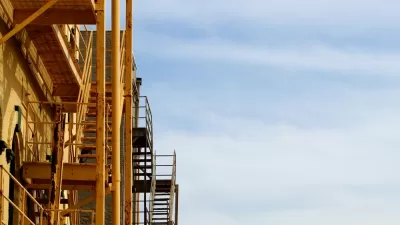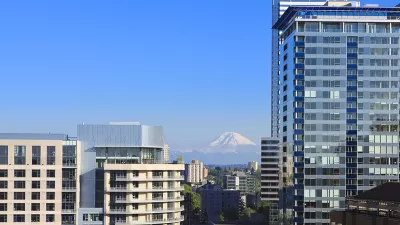Successful urban highway deconstruction projects have swapped highways for boulevards and saw economic, public health, and urban design benefits. Will more cities opt for highway removal programs over reconstruction?

Decades-old urban highways in the U.S. are showing their age. In some cases, factors like deteriorating overpasses, unsafe expressway to city street transitions, and proximity to residential neighborhoods are guiding planners to implement fixes guided by modern safety standards and the prioritization of walkable and bikeable urban spaces.
Plans ranging from highway removal to underground relocation are underway across the country and have already seen wins in terms of economic revitalization, public health, and urban design. Steep construction costs and difficulty in securing funding, however, is making the process of reconstruction or removal challenging for many cities.
"While the federal government underwrote most of the cost of building the interstate system in the 1950s and 1960s, state and local governments now provide about 80 percent of public infrastructure funding. With perspectives on land use, transit, and equity also evolving, many cities are finding themselves at a crossroads when it comes to highways: remove or rebuild?," writes Kathleen McCormick.
The Congress for the New Urbanism (CNU), a long-time proponent of highway removal, published the 2019 Freeways Without Futures report, detailing case studies of removal projects in New Orleans, Tampa, Dallas, Austin, Portland, Louisville, Denver, Syracuse, Oakland, and Buffalo.
The Senate-led Environment and Public Works Committee approved the America’s Transportation Infrastructure Act of 2019, a five-year program allocating up to an 80% federal subsidy for planning, technical assistance, and capital construction related to the removal of highways in U.S. cities. In response, CNU is preparing a tool kit and best practices guide to provide cities with such tools as "design standards, transportation network concepts, engineering specifications, and metrics to measure success," says CNU board member and Nelson\Nygaard principal and transit planner Larry Gould.
As planners begin to share their experience and understand the benefits of highway removal, it is becoming increasingly clear that the benefits of removal outweigh those of reconstruction.
FULL STORY: How Urban Highway Removal Is Changing Our Cities

Study: Maui’s Plan to Convert Vacation Rentals to Long-Term Housing Could Cause Nearly $1 Billion Economic Loss
The plan would reduce visitor accommodation by 25,% resulting in 1,900 jobs lost.

North Texas Transit Leaders Tout Benefits of TOD for Growing Region
At a summit focused on transit-oriented development, policymakers discussed how North Texas’ expanded light rail system can serve as a tool for economic growth.

Using Old Oil and Gas Wells for Green Energy Storage
Penn State researchers have found that repurposing abandoned oil and gas wells for geothermal-assisted compressed-air energy storage can boost efficiency, reduce environmental risks, and support clean energy and job transitions.

Santa Barbara Could Build Housing on County Land
County supervisors moved forward a proposal to build workforce housing on two county-owned parcels.

San Mateo Formally Opposes Freeway Project
The city council will send a letter to Caltrans urging the agency to reconsider a plan to expand the 101 through the city of San Mateo.

A Bronx Community Fights to Have its Voice Heard
After organizing and giving input for decades, the community around the Kingsbridge Armory might actually see it redeveloped — and they want to continue to have a say in how it goes.
Urban Design for Planners 1: Software Tools
This six-course series explores essential urban design concepts using open source software and equips planners with the tools they need to participate fully in the urban design process.
Planning for Universal Design
Learn the tools for implementing Universal Design in planning regulations.
Ascent Environmental
Borough of Carlisle
Institute for Housing and Urban Development Studies (IHS)
City of Grandview
Harvard GSD Executive Education
Toledo-Lucas County Plan Commissions
Salt Lake City
NYU Wagner Graduate School of Public Service





























